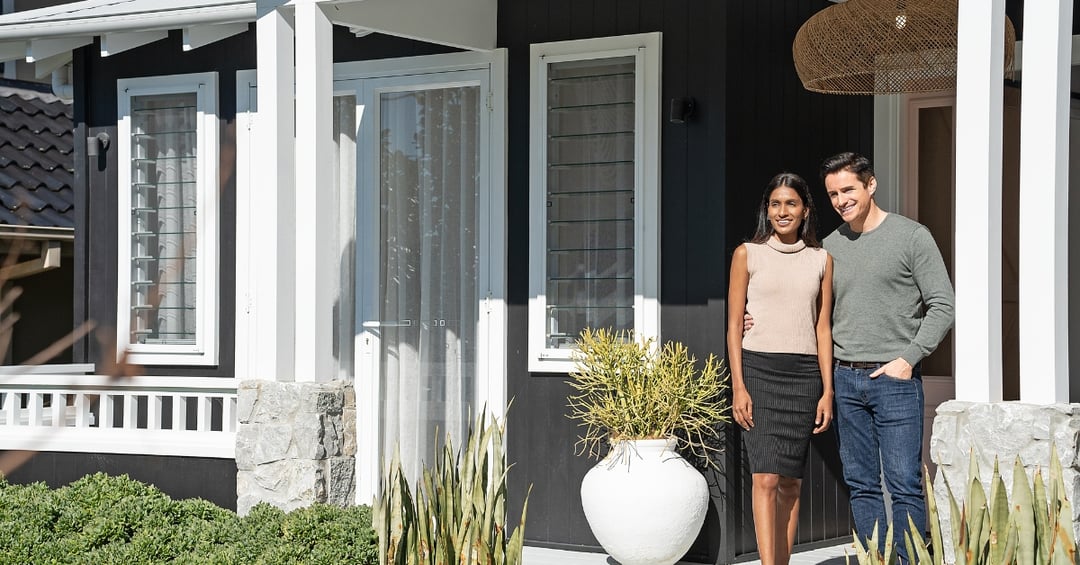The Questions to Ask Yourself When Upsizing Your Home

There are many reasons why you might be considering upsizing your home. Perhaps you are planning on growing your family, or maybe you have outgrown your current space. Whatever the reason, upsizing will be one of the biggest financial decisions you will likely have to make.
Before committing, it is necessary to consider asking yourself a few questions.
Upsizing FAQs
How do I find out how much my current property is worth?
Appraising your property before upsizing will give you an idea of how much your current home is worth. An appraisal will also uncover the rate of growth of value of your home since you first bought it. It will help you to determine the value of your property and its possible selling price.
LJ Hooker provides a free expert appraisal, giving you a detailed report with a summary of current market conditions and the estimated resell price of your property.
What do you want out of upsizing?
Before upsizing, it is wise to think about your objectives. What are your property goals? Are you upsizing solely to enhance your lifestyle or are you purchasing as an investment opportunity?
By understanding your goals from the beginning, you will have a greater chance of buying a property that is suited exactly to your needs.
Write a list of all your must-haves such as property size, number of rooms, location, etc. Then, use this list to guide you in your decision-making.
Is buying the best option?
Investing in a property is a big decision, whether it is your first time buying or not. Upsizing to a larger home often also means buying something more expensive. For this reason, careful consideration is needed. For example,
- Will your new mortgage be affordable?
- Do you have future plans for reselling?
- Does the new property have future potential?
- Would it be a better option to extend or renovate your current property?
As well as the financial considerations of buying, you also need to determine whether it is the right time to upsize. Is your current financial situation secure and timeline realistic enough to be moving into a bigger house right now?
Is renovation an option for you?
A popular alternative to upsizing is renovating/extending your current property.
Can you add an extra room or extend the floor space? Or perhaps you may have the outdoor space to add a granny flat if you need to accommodate extra people?
Renovating can improve the comfort and functionality of your current home and if done right should increase the value of your property as well.
You may access the equity in your home loan or extend your loan to do this. However, it is important when renovating not to overcapitalise.
What are the costs of upsizing?
Upsizing will have you spending more. Aside from the initial purchase price of the property, there are also other costs involved in upsizing that need to be kept in mind.
Stamp duty is one of the biggest costs of buying a new home. You will have to pay this on or before settlement - so make sure you factor this into your budget.
If you will be borrowing more than 80% of the property’s value you might also have to factor in Lenders’ Mortgage Insurance.
Lastly, moving costs are an often forgotten expense when upsizing. From transferring utilities to new furnishings, remember to consider all these added expenses to ensure there are no unwanted surprises come move day.
What is your long-term plan?
It is wise to think about your long-term goals prior to upsizing. When choosing a bigger property, consider the following:
- The lifestyle you wish to have
- Kids’ schooling and the possibility of additional children
- Will this be your ‘forever home’? Or are you planning for a potential investment or financial return?
You might have aspirations of starting a home business or even making this property a future windfall/inheritance for your kids. Get clear about your future goals so that you can define the right property for you, both now and in the future.
What are the hidden costs and responsibilities?
Aside from hidden costs such as Stamp Duty, buying a bigger property also comes with additional responsibilities.
A larger home requires more upkeep. From having to clean additional rooms to maintaining a bigger yard - upsizing means chores and repair work are amplified.
Additionally, buying a bigger house means higher:
- Furnishing costs
- Property taxes
- Insurance costs
- Utility costs
- Closing costs
Even if you have the money now, you need to think about your financial future and whether a bigger house is something you can afford 5, 10, 15 years down the track.
Consider these details before you make any decision to upsize, and plan a meeting with a financial advisor to be sure you have the financial backup required to go larger.
Consult the experts
Our team at LJ Hooker is waiting to assist you. We offer you experience alongside excellent market knowledge that helps make the buying or selling process as smooth as possible.
Voted Australia’s number one real estate brand, a little help from the team at LJ Hooker can be invaluable when it comes to buying or selling your home.
Find an agent or get a free property appraisal to start your upsizing journey today.



